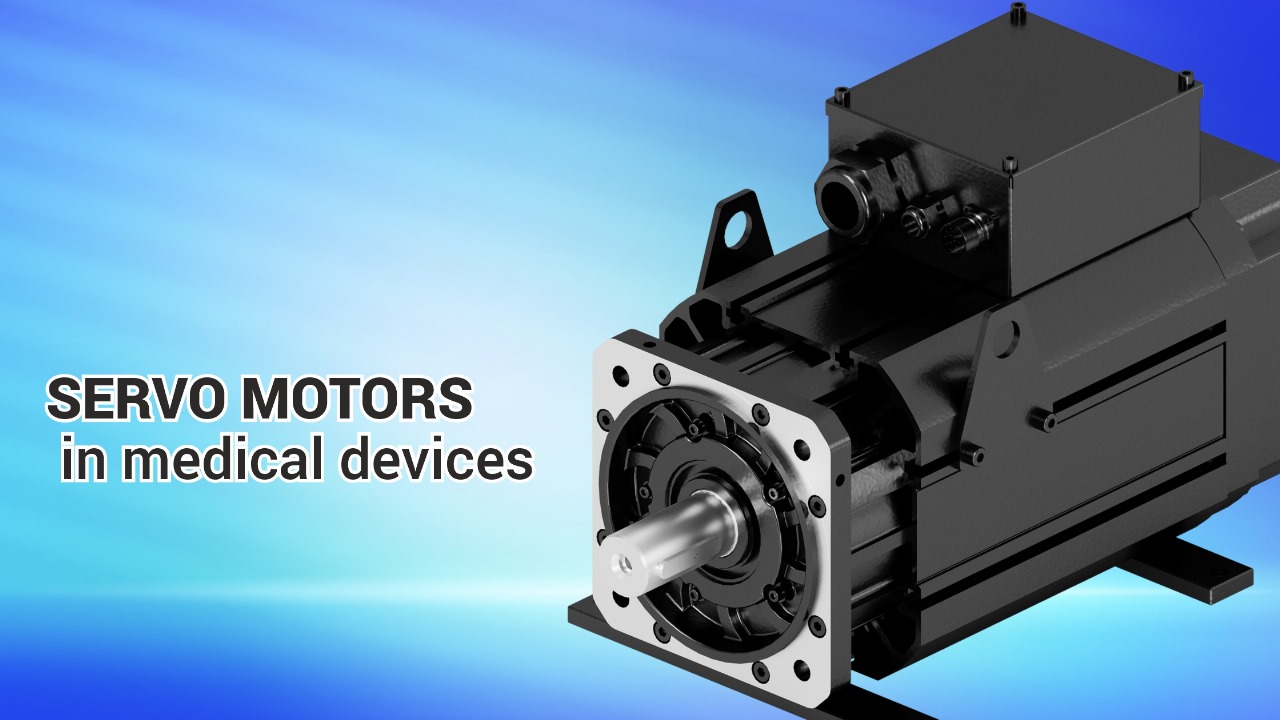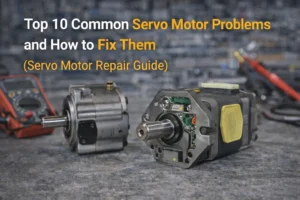Medical devices with servo motors are developing the healthcare and automation of laboratories by providing accuracy, control, and dependability. These are small but strong systems in which the medical equipment can make very precise movements in both diagnostic images and robot surgeries. In India, hospitals and laboratories are putting an emphasis on efficiency and patient safety, which is why the demand is increasing in regard to Servo motors in medical devices.
Servo systems are applied in surgical instruments, testing apparatuses and even in the packaging units of pharmaceuticals where no compromise is allowed. The principles of motion control in laboratory equipment allow medical engineers and manufacturers select the appropriate servo technology to use in each activity.
Step 1: Understanding Servo Motors and Their Core Function
A servo motor is a motor that is highly specialized as an electric motor and which has a feedback mechanism to constantly regulate its speed and position.
Key components include:
- Control – Transmission of signals to the motor.
- Drive (Servo drive) – Transduces control signals into power.
- Feedback sensor – Gives feedback that facilitates proper positioning.
This is essential in medical and laboratory practice. Medical devices have servo motors to provide smooth movements and repeatability of movements in scanners, ventilators, and robot arms.
Step 2: Applications of Servo Motors in the Medical and Laboratory Field
1. Diagnostic Imaging Systems
Servo motors control the motion of tables, Xray arms, and ultrasound heads in MRI and Xray to provide controlled scanning measures to be comfortable and accurate to the patient.
2. Robotic Surgery Systems
Surgical robotics uses servo drives to provide a responsive and stabilized movement to the surgeon. High torque servos provide delicate, yet powerful actuation.
3. Laboratory Automation
Laboratories use servo motors to drive pipeter arms, centrifuges and automated test lines. Motion controlled laboratory equipment reduces human error and improves the test consistency.
4. Pharmaceutical Manufacturing
Medical systems Precision servo drives are applied to fill, label, and package medical drugs with the correct dosage and sterile conditions.
Step 3: Advantages of Servo Motor in Medical equipment
- High Precision: Ideal placement of medical sensitive tasks.
- Small Size: Minimal size arrangements suitable in diagnostic equipment.
- Low Noise: Noise free and smooth working in the clinical environment.
- Energy Saving: Modulated energy consumption with little wastage.
- Safe and Reliable: Built in Feedback: Over rotation and mechanical failure.
The advantages of servo motors in medical devices render them a favorite in the contemporary healthcare engineering.
Step 4: Servo Motor Selection Tips
In selecting servo motors in diagnostic machines or automation in the laboratory:
- Determine application torque and speed requirements.
- Servo drives with inbuilt feedback and safety.
- Choose high efficiency motors to reduce the energy costs.
- Check stock of maintenance and spares before buying.
When buying servo motors in India, it would be advisable to consider certified suppliers such as THM Huade they are offering quality and support of industrial grade.
Step 5: Future of Servo Motors in Medical Technology
Servers are advanced in terms of AI and real time monitoring. Predictive maintenance will be provided by future servo motor and drive systems, which will reduce the amount of time spent on downtime in life-critical equipment.
Multi axis servo control systems are already being used in complex tasks performed by automation engineers like surgical navigation and micro fluidic testing.
Common Model Code of Servo Motor
THM THH6-18F0320K3-F2R4, THM THH6-18F0420K3-F2R4, THM THH6-18F0520K3-F2R4, THM THH6-18F0620K3-F2R4, THM THH6-18F0920K3-F2R4, THM THH6-18F1120K3-F2R4, THM THH6-18F1420K3-F2R4, THM THH6-18F1820K3-F2R4, THM THH6-18F2220K3-F2R4, THM THH6-21F2820F3-F2R4, THM THH6-21F3120F3-F2R4
Final Overview: Powering Precision in Healthcare
The importance of servo motors in medical machines is inexplicable. They are the backbone of the modern healthcare equipment and laboratory machines due to their accuracy, adaptability and reliability. Due to the advancement in innovation, efficiency, safety, and precision in the medical profession will keep on being propelled by servo motors.
For durable, energy efficient, and precise motion systems, THM Huade became a top profile name for servo systems and automation solutions in India.
FAQ’s for Medical Equipment
Q1. What is a servo motor used for in medical equipment?
Medical equipment employs servo motors to offer smooth and accurate movement. They are used to provide precision in the use of such tools as robotic arms, surgical machines, and patient beds.
Q2. How do servo motors enable motion in lab equipment?
Servo motors are used in laboratory machines to regulate the rotation, positioning, and speed of machines to carry out tests and analysis work and provide reliable and reproducible results.
Q3. Why are servo motors important in healthcare applications?
In medical devices, servo motors are important as they are more precise, safe, and efficient and thus less subject to error and better patient care and diagnostic results.
Q4. Which medical devices use servo motors?
Servo motors are popular in ventilators, robotic surgery, diagnostic scanners, infusion pumps and automated laboratory analyzers.
Q5. Are servo motors safe for use in medical environments?
Yes, medical grade servo motors are safe, quiet and clean, and fulfilling healthcare standards of hygiene and performance.
Q6. What type of servo motor is best for medical use?
Medical applications of brushless DC servo motors are favored since these serve purposes that are quiet, power efficient and hardly need any maintenance.



